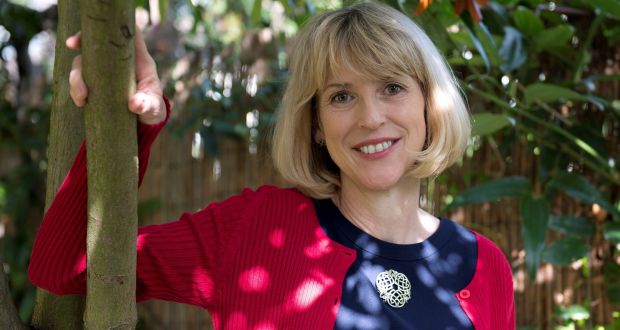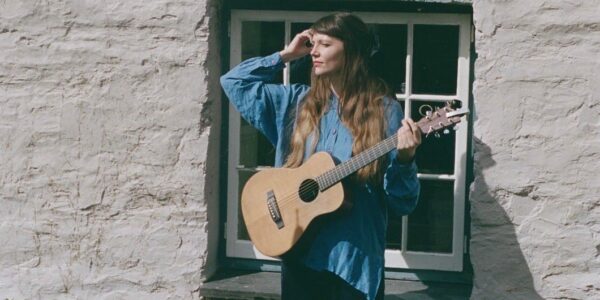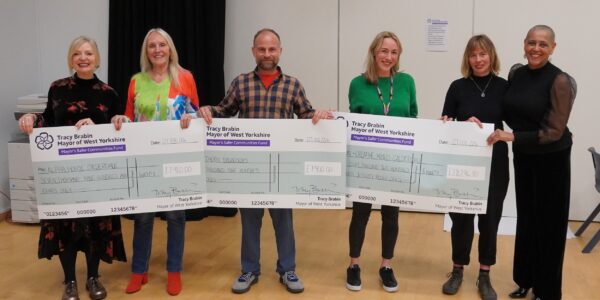Anne Patterson’s Arvon Week
22 Jun 2018 / My Arvon Week

In August 2007 I nearly didn’t go on an Arvon novel writing course. My ex said he had to go abroad for work and couldn’t have the children for my planned one child-free and work-free week of the year. He was very apologetic. He’d pay for another course.
Perhaps I threatened to leave the kids home alone? Anyway he backed down and I set off with a rucksack full of first drafts, new pens and empty notebooks to Totleigh Barton. I didn’t have a laptop and I remember there was a payphone in the hall which makes the whole experience seem even further in the past. I had been writing away all my life, very sentimental poems, an ‘underground’ school magazine, the beginnings of several ‘hilarious’ sitcoms, short stories I gave to people for Christmas and novels that never went anywhere.
What I loved about the week at Totleigh Barton was that there was space to think about writing. We could all dare to imagine ourselves as writers for that week in that magical place. I didn’t have to cut the grass or find trainers or tell anyone it was bedtime. (Though maybe someone should have told me it was bed time – there were a few late nights.) There was good nourishing food and someone else had made the decision about the menu – that seems a small thing but when I think of the hours I have spent thinking ‘what can I cook?’ and traipsing round supermarkets when I could have been writing…
The tutors were encouraging but also authentic. Perhaps they took it in turn to be nice cop and extremely honest cop.
One important thing I learnt was how to give people feedback and how to take it. I still remember the advice, if one person tells you something isn’t working you can ignore them, but if 3 people tell you, you need to look at it again.
I also remember they told us no preambling, explaining or apologizing before you present your work. I have tried to stick to this myself. It helps people look at your words with an open mind. Each piece of writing needs to be able to stand up for itself. You won’t be following people home from the library explaining things to the reader.
The Arvon course also taught me to listen to any criticism or praise before jumping in to explain or defend. If something stops a reader in their tracks and makes them have to work too hard you will lose them. If someone has been kind enough to read or listen to your words, you need to let them have their say.
The idea for my novel Yes has been around for a long time. I arrived at Totleigh Barton in 2007 with a few chapters and a character, Maureen McCormack who wakes up after a stroke, her memory fragmented. She can say only one word – Yes. In her family and community, people kept themselves to themselves, never talking about how they really felt. While she’s critical of that in others, after the stroke it dawns on her that she too has been part of the problem: isolating herself, emotionally, by being too busy to talk; shying away from uncomfortable conversations; worrying about being judged. While recovering from her stroke, Maureen has time to revisit, mentally, her secrets, her lovers, her crushes, her furious hatreds and the deep sadness she’s packed away and tried to forget. Her silence encourages her visitors to keep talking. Her hospital bedside is a venue for monologues and confessions, declarations of love and stories of betrayal. When I explained the idea for the novel, I could see from the face of one of the tutors that I needed to make sure there was humour and hope in Maureen’s life and the novel. I think I have achieved that. I was very pleased to be shortlisted for the McKittrick Prize this year. The McKitterick Prize is awarded by The Society of Authors and given annually to an author over the age of 40 for a first novel, published or unpublished.

Yes was finally published by Silvertail Books in 2017. I have a busy job in the NHS and find it hard to switch off and get into writer mode when I get home. I wrote the novel like knitting squares for a patchwork blanket because I had to grab time in between work and bringing up a family. It suited the shape of the novel because Maureen’s post stroke recollections are recalled in short episodes and the stories of her visitors are constricted by hospital visiting times.
The very best thing about my Arvon week was the opportunity to make writing friends, some of whom I still see in our always evolving writing group which we call Arvonopoly. Without them and the deadline of a meeting I don’t think I would have ever finished Yes. Others, who live too far away to meet regularly, still keep in contact and we cheer each other on from the Facebook/ Twitter sidelines.
You can find me on Facebook, Twitter and Amazon.



